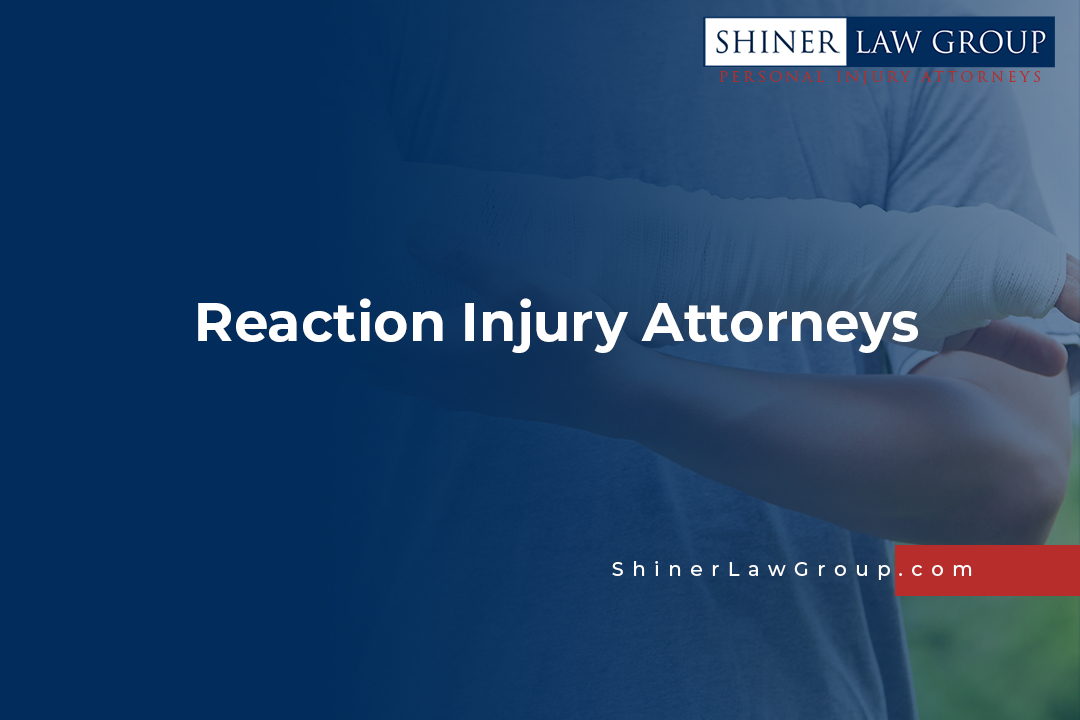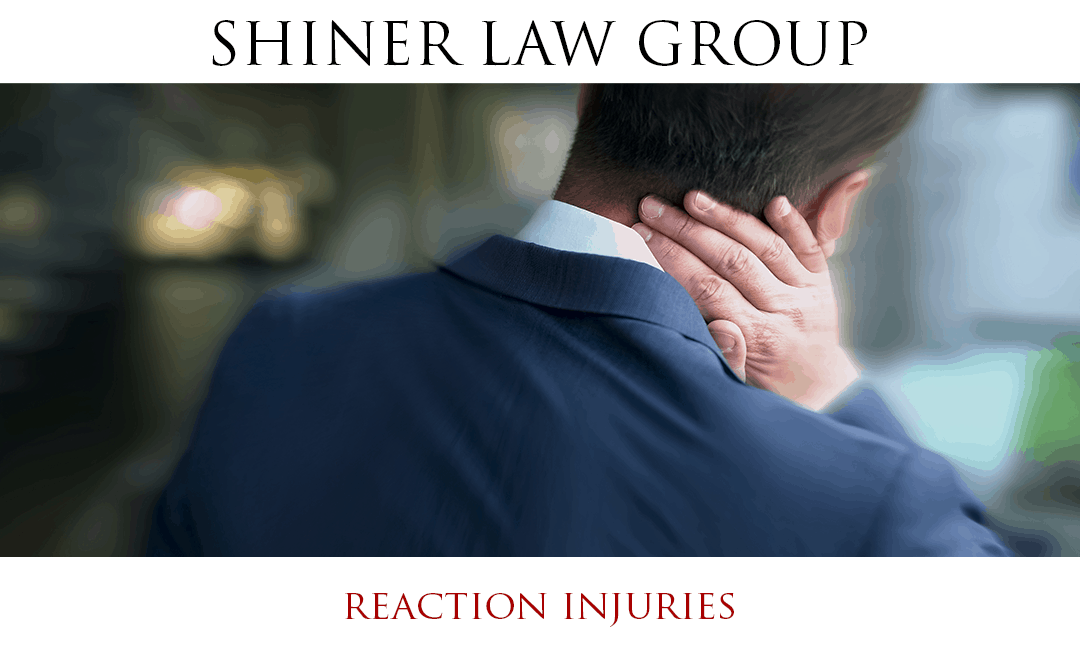Employees working in different environments are at risk of sustaining injuries. Some of the more common injuries that employees may sustain include spinal cord injuries, repetitive motion injuries, shoulder dislocations or muscle strains and falling object injuries. One of the less common workplace injuries is a reaction injury. Reaction injuries can be sustained in a number of ways.
For example, a worker may step on slippery tiles and feel as if they’re going to fall. They may react to avoid falling which can end up in an injury. A steady jerk can cause different types of injury like torn or pulled muscles and even broken bones. These types of injuries are called reaction injuries.
Reaction injuries can affect any part of the body. However back, limbs and neck are known to be most commonly affected. When a person reacts to a situation, their muscles tighten up which increases the risk of injury. Often times, workers don’t realize that they’ve suffered a serious reaction injury and ignore the pain they’re experiencing. This can cause the reaction injury to aggravate.
Reaction injuries don’t just occur because of a physical reaction to a dangerous situation. They may also result from an allergic or emotional response to an event. In this post, we’ll talk about some reactions that can cause an injury to workers and how workplace reaction injuries can be prevented.

Injuries Resulting From Reactions
Physical Reactions
Physical reactions that can cause reaction injuries include trauma without an impact like reacting to avoid slipping on a floor that can result in a whiplash or meniscus tear. There are several other types of non-contact injuries. These include getting injured because of bending, climbing, reaching, standing or sitting in a certain position for an extended period of time. Medical conditions like heart attack may also be considered a reaction injury as it results from the body’s reaction to extreme conditions.
Emotional Reactions
Employees may also suffer emotionally because of work demands. Emotional reaction may manifest in form of insomnia, anxiety disorder, or PTSD. If a job is continually stressful or if an employee is exposed to inhumane or disturbing conditions, they can suffer from mental conditions. It can be hard to convince an employer that work-related duties caused an emotional reaction like insomnia or anxiety disorder.
Allergic Reactions
Workers can also suffer from reaction injuries due to harmful substances and toxins in the work environment. Toxic fumes, chemicals and mold may build up over time and cause reactions like respiratory problems, lost pulmonary function, skin irritation, and other illnesses. An employee who suffers from allergic reactions in a workplace may be provided workers’ compensation benefits.
Common Types of Reaction Injuries
Some of the most common types of work-related reaction injuries include:
- Meniscus tear
- Neck strain
- Pulled neck muscle
- Heart attack
How to Prevent Work-Related Reaction Injuries
Preventing work-related reaction injuries can be hard. However, employers should try to minimize the likelihood of their employees suffering from a reaction injury. They should ensure that the work environment is free from all hazards that can lead to reaction injuries. For instance, the environment where employees are required to work shouldn’t contain any toxic fumes or chemicals that can cause allergic reactions. If workers are required to handle dangerous chemicals/substances, proper safety equipment like masks should be provided to prevent reaction injuries.
Additionally, an employer should alert workers about dangers that can cause a reaction injury. For instance, signs should be placed for wet flooring to ensure that workers don’t end up getting injured from reacting to avoid slipping on a wet floor.
Employees should also pay attention to what’s going on in the environment around them to avoid work-related reaction injuries. If the floor is wet, they should avoid walking on it. If the environment is unsafe and is causing them allergic reactions, they should inform their employer before their condition gets worse. If proper safety gear is not provided to an employee, they should request the employer to provide them that.
Workers’ Compensation for Reaction Injuries
Getting workers’ compensation benefits for reaction injuries is extremely difficult as the employee must prove that the injury resulted from their work-related duties. For example, if a worker develops an occupational disease from the workplace, they must provide medical evidence about the onset of symptoms and also prove that hazardous material in the workplace caused the disease. Getting compensated for an emotional reaction injury is even more difficult as the victim must prove that the medical condition resulted from work-related duties.

Contact a Professional
If you ever sustain a reaction injury at the workplace, inform your employer about it as soon as possible. The sooner you inform them, the greater will be your chance of getting compensated for your injury. If you aren’t sure that the reaction injury is a result of your work-related duties, discuss your situation with your physician. They may be able to advice you about what caused the injury and whether it’s work-related or not.
When you inform your employer about the work-related reaction injury, they may try to deny your claim. Proving that work-related duties caused the reaction injury is extremely difficult and employers know this. If an employer denies your right to workers’ compensation benefits, hire an experienced attorney from the Shiner Law Group. Our attorney will evaluate your case and take it to the court if your employer doesn’t allow you to claim workers’ compensation benefits. They’ll do their best to ensure that you get the compensation you’re entitled to for your work-related reaction injury.
Contact our attorney today at (561) 777-7700 to schedule a free consultation of your case.